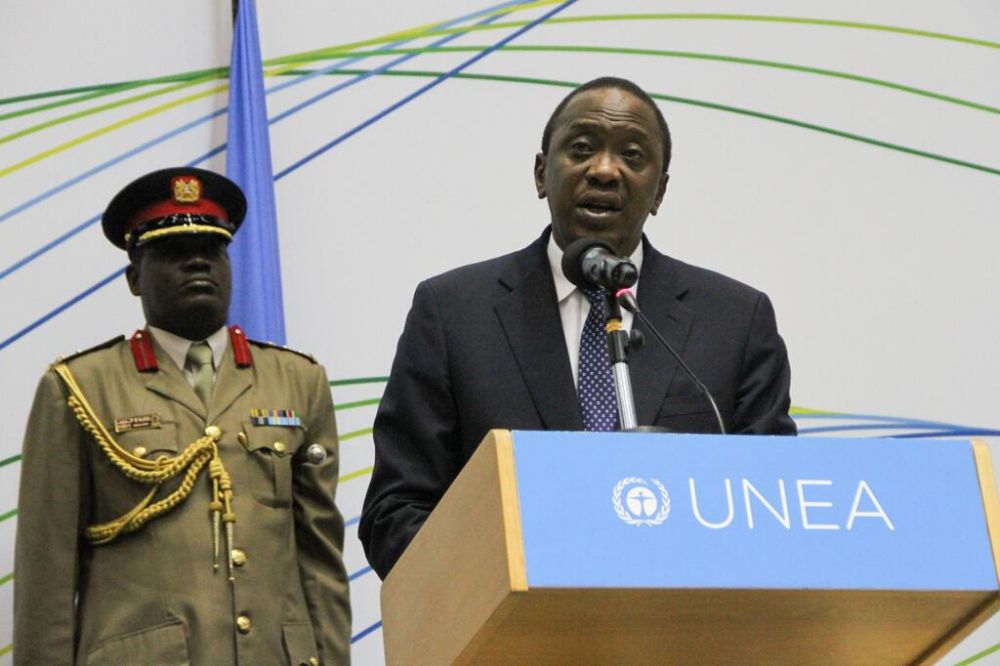Kenyan President opens High-Level Segment of UNEA-2
Uhuru Kenyatta opened the High-Level Segment of the UN Environment Assembly in Nairobi on Thursday

Kenyan President Uhuru Kenyatta opened the High-Level Segment of the United Nations Environment Assembly in Nairobi on Thursday.
The meeting is taking place at the headquarters of the UN Environment Programme in the Kenyan capital and brings over 1,200 high-level delegates together to address the global environmental agenda.
President Kenyatta said: "Over the last two decades, we have seen, across the world, a movement emerge saying that the environment can no longer be a tertiary concern, that building a sustainable future cannot be an afterthought,.. Your presence at this critical convening brings momentum to that movement and amplifies the urgency of the issue we are discussing."
United Nations Deputy Secretary-General Jan Eliasson said that action on all the issues under discussion was essential to implement the 2030 Agenda for Sustainable Development and the Paris Agreement on climate change.
Mr Eliasson said: "The decisions you will take are critical for the well-being of this and future generations...They will have profound and lasting consequences."
Achim Steiner will step down as UNEP Executive Director after the event, with former Norwegian Environment Minister Erik Solheim succeeding him in the role.
Mr Steiner, who launched a crucial UNEP Policy Statement on Thursday labelled the previous UNEA meeting in 2014 a resounding success and cited the doubling of UNEP’s budget and increased commitments in addressing air pollution, the illegal trade in wildlife, and the state of the world’s oceans.
Mr Steiner said: "We are proud to have seen thousands of actions, people and initiatives congregate here over the years...At Rio+20, heads of state called for a new era in environmental governance, for a new environment assembly. You are that dream come true."
The UNEA-2 agenda also covers the link between environmental degradation and a decline in health and increase in premature deaths.
The meeting has also focused on climate finance mechanisms to support mitigation and adaptation projects in developing countries.
The UN launched its Wild for Life campaign on Wednesday to address the illegal trade in wildlife and the initiative is aimed at creating collaboration, policy implementation, and grassroots participation to sensitise communities in source and destination countries to the war on poaching.
The campaign brings together UNEP, the UN Development Programme, the UN office on Drugs and Crime, the World Bank, the Convention on International Trade in Endangered Species (CITES) and international celebrities to raise awareness on the need to protect endangered species such as the elephants, sea turtles and pangolins.
Earlier in May, authorities in Kenya burnt 105 tonnes of ivory to raise awareness on the plight of Africa’s elephants and to deter poachers.
President Kenyatta called for a concerted international effort to support the campaign on Thursday.
Negotiations at UNEA-2 will continue until Friday evening, when the resolutions agreed on will set the path for much of UNEP's work for the next few years and provide momentum to early actions on achieving the 2030 Agenda and implementing the Paris Agreement on climate change.






